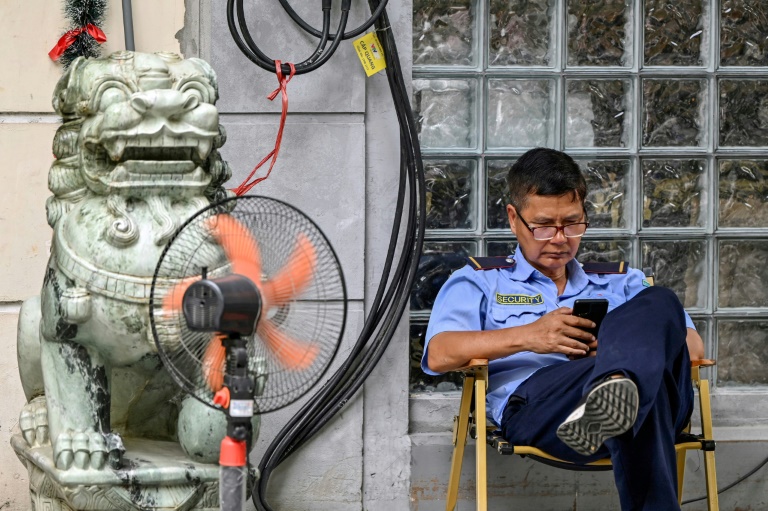The importance of supply chains has been hammered home in recent times, with both the global pandemic and the Russia-Ukraine conflict causing unprecedented levels of disruption. It’s added extra pressure onto a corporate position that many are either unaware of, or that is dismissed as not being worthy of a board seat.
The art of procurement has long been overlooked. Procurement is the sourcing and purchasing of goods and services, which is playing an increasingly prominent role in the current economic climate, as businesses do all they can to keep their costs to a minimum.
Procurement Marketplace
Amy-Renee Hovorka, Founder of Procurement Marketplace, is setting out to open people’s eyes as to the value of procurement professionals. Through her platform, which helps business leaders secure procurement talent for specific projects, Hovorka is helping raise the profile of the profession as a whole.
“At the moment, procurement professionals might fall under a company’s umbrella of ‘finance’, or be shunted off to another loosely related department. These are strategic operators that are instrumental in all global firms’ supply chains, yet they are not regularly given a seat on boards,” outlines Hovorka.
Hovorka highlights how this lack of executive recognition often means that procurement professionals are over-worked, as they are not provided with the time or resources to carry out the projects they are given. Hovorka’s new company, Procurement Marketplace, is seeking to solve this by providing an on-demand procurement capacity, which works on a case-by-case basis.
This means that companies can acquire specialized talent that is tailored to each individual procurement-related project, rather than having to stretch their in-house procurement team thin. In doing so, Hovorka hopes that those in this profession will receive more appreciation for the role they play in company infrastructures, which will ultimately lead to more procurement-filled board-seats.
Amy-Renee Hovorka’s journey into procurement began in the New South Wales government, where she developed strategies and composed ministerial speeches on how to help the construction industry progress. This involved frequent forays into the world of procurement, which eventually led to her being given the responsibility of boosting savings by streamlining governmental supply chains.
In Hovorka’s first procurement-based project, she saved one million Australian dollars, before then going on to save the New South Wales Police force over twelve million dollars. This instigated a move into consultancy, where Hovorka helped lift one company’s share price by 15% by saving them 100 million dollars over three years. The targeted amount of savings was just 30 million dollars.
Perhaps unsurprisingly, Hovorka’s procurement skills were turning heads on an international scale, and the King Abdullah University of Science and Technology came knocking at the door. Hovorka took up a procurement management role here, and again applied her eye for improving innovation while at the same time cutting costs. However, her time in Saudi Arabia came to an all-too abrupt end.
“A new manager came along and decided he didn’t want a female manager on the team, so he made me redundant. At the time, it was incredibly frustrating, but thankfully, it enabled me to train my attention more acutely onto innovation management. I worked with inventors from the University, managing both their Intellectual Property development and product development, and guiding them through prototyping, proof of concept and other stages of the process,” underlines Hovorka.
Hovorka’s experience in Saudi Arabia was symptomatic of a broader trend. Not only are procurement professionals being largely excluded from the board-room, but within the profession, women are being marginalized. In 2019, a survey of 300 Chief Procurement Officers revealed that only 25% of procurement management committees and teams are women. Furthermore, at procurement conferences, women make up a mere 30% of attendees, and just 20% of speakers.
Hovorka had tested out the start-up waters years before, and although she had enjoyed some success, she decided it wasn’t the right fit for her. Fast forward to her return to Australia, and due to her recent experiences, Amy-Renee Hovorka felt compelled to found Procurement Marketplace. It would serve as a vending machine for procurement services, and Hovorka quickly developed a provisional patent in Australia, the US and Europe.
“Through my Procurement Marketplace, I’m hoping to democratize procurement talent, while at the same time bolstering the profile of the profession as a whole. I’ve loved my career in the field, and I want others to be more aware of just how rewarding and fulfilling this pathway can be,” concludes Hovorka.
As a member of a marginalized minority in a profession that has repeatedly been dismissed, some might say the odds have been stacked against Amy-Renee Hovorka from the outset. However, with her latest venture, she continues to successfully defy them in her quest to establish some level ground across the procurement industry.







